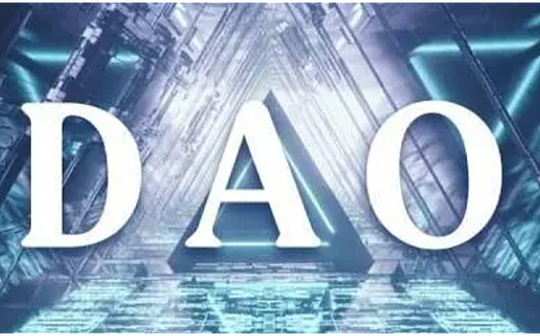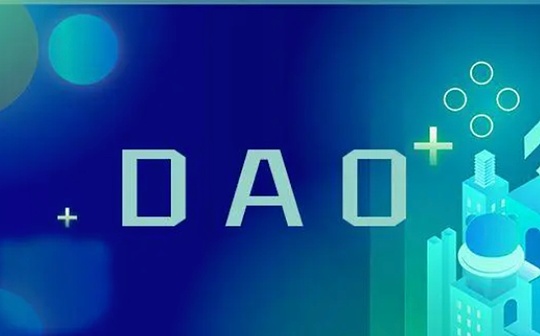
Author: Preston J. Byrne Source: coindesk Translation: Shan Oppa, Bitchain Vision
This week, Wired claimed that the decentralized autonomous organization (DAO) is becoming a gathering place for “dangerous groups.”Preston J. Byrne said that this article misunderstood the actual functions and uses of DAO.
The well-known magazine Wired recently published an article claiming that the Decentralized Autonomous Organization (DAO) may become the next major online extremism gathering place.The article says:
“2024 may be a year when neo-Nazis, jihadists and conspiracy theorists turn their utopian vision of creating a self-governing nation into reality – not in the real world, but in the decentralized autonomous organization (DAO)In form.”
Article author Julia Ebner is an academic scholar who studies extremism and writes books about European political movements, and she has allegedly “infiltrated” several such organizations (referring to gatherings and Discord voice chats that participate in public publicity).These organizations include highly controversial and publicly active groups such as “Les Identitaires” in France and “Reconquista Germanica” in Germany.
It is relatively simple to conduct academic research on such extremist groups because most of the participants are a group of gamers who are addicted to role-playing, publicly publishing inflammatory content to attract attention, and have almost no basic sense of cybersecurity.One indicator that can tell whether an “extremist” group is as dangerous as Hamas or Hezbollah is whether the servers the group uses are located in the United States.In the United States, the FBI can identify users on these servers in one day through subpoena, and even in emergencies do not require subpoena at all (many companies will voluntarily disclose these records in life-threatening situations).
Reconquista Germanica is particularly vulnerable to this kind of attack because the organization operates through Discord groups, a San Francisco-based social media company whose app of the same name displays all user communications in plaintext (i.e., unencrypted) form, so these communications areIt is free to disclose to law enforcement and is often disclosed.Just like the alleged right-wing coded “Redacted Club DAO” mentioned in the Wired article, most DAOs also rely on Discord for community management and publicity.
Ebner’s allegations against DAO are lacking
Ebner claims that DAO may become a base camp for extremism, but there are many loopholes in her argument that are hard to be convinced.
First, she only mentioned DAOs that exposed Discord group information on Twitter, such as Les Identitaires and Reconquista Germanica.These organizations are active on Discord, a U.S.-based platform that is worth studying, but not all DAOs are.The more convincing evidence should be: Prove that any DAO mentioned in the article communicates using encryption protocols rather than Discord.
It is ideal to provide direct evidence that DAOs are used for illegal purposes by such organizations.For example, the Taliban met two of two criteria proposed by Ebner: Instead of using Discord, they used crypto protocols (mainly WhatsApp) to coordinate lightning attacks against major cities in Afghanistan.However, as far as I know, even if the Taliban has full autonomy within the territory of Afghanistan, they have the freedom to choose any software tool and do not use DAO.
Ebner continued to write in Wired:
“How dangerous would a cyber troll would pose if DAOs were used to launch campaigns to intervene in elections? Extremist DAO activities could challenge the rule of law, threaten minorities, and undermine institutions seen as the fundamental pillar of democratic institutions. Another risk is, DAO can be a safe haven for extremist movements, enabling users to bypass surveillance activities in government regulation and security departments.”
This is ridiculous.
First, she studies that members of such extremist organizations live in Western societies and work freely, although their views may be difficult for mainstream society to accept.But in the United States, it is not illegal to hold and express extreme views at least.In fact, extremists’ public remarks help early warnings from law enforcement, which closely monitor these forums.The only real existence of these communities, even if legal, is seen as a social threat, often from the academic/news extremist research and “misinformation research” circles, as well as their political allies, are awareness of freedom of speechForm rival.
The reality is that in the real world, if you are stupid enough to plan a serious crime in an open Discord or seriously challenge the rule of law, then it is very likely that law enforcement has grasped everything about you and you end up in jail.
When we see the peace-loving, crypto-savvy, non-racist “DAOs” that also use similar communication tools, we should not conclude that this will turn the crypto community into extremists, nor do we mean that DAOsBeing friendly to extremists even means that DAO is suitable for extremists.This only means thatDAO, like many other online communities that use Discord, values participation rather than confidentiality, which is one of the most popular social media apps in the world, even organizations such as political movements.Joining the DAO will not create any “safe haven” and will not “bypass government regulation and security services (sic) surveillance activities.”In fact, it is exactly the opposite.
What does DAO actually do
I have a lot of experience in DAO. In 2014, I participated in the design of the first Ethereum DAO prototype and later provided consulting services to multiple DAOs.The main function of DAO is not communication, but manages on-chain smart contracts, which determines when to exercise, modify, add, or remove certain administrator-level permissions on the contract (such as setting interest rates or changing feature sets).
DAO is not a “self-governance country”, but a software application for self-governance.Most DAOs are not yet mature, and they often add DAO elements in a hurry just to sell crypto tokens to provide founders with a “runway” to develop new code and find product market fit.
A few projects, such as MakerDAO, have achieved product market compatibility once launched, or are very close, and token holders will regularly participate in voting proposals.Even in this case, the relevant voting discussions will occur in the public “governance portal” and are supervised by token holders who often do not reveal their identities to create user accounts for participation, although many have the ability to influence the results of the proposal.The large token holders will choose to disclose their information.
Generally speaking, when a change proposal is finally agreed and implemented, a lot of public discussion has long passed.Most of these debates occur on the surface, and law enforcement agencies can easily monitor them as long as they want.
Why DAO is not suitable for extremism
Ebner is concerned that DAO may become a hotbed of extremism, but this concern is unfounded.
First of all, DAO has nothing special about social media, and it is no different from the way existing social media communicates.
More importantly, the technical characteristics of DAOs make it difficult to use in crime and hidden activities:
-
(a) Smart contracts are open and transparent, and the data on the chain can be checked
-
(b) The blockchain transaction data of mainstream EVM chains (most DAOs are located) is not encrypted and can be used directly by analysis companies such as Chainalysis to assist law enforcement agencies in monitoring
-
(c) The main function of DAO is to coordinate smart contract status changes
These state changes are submitted to the chain only after a broad consensus among DAO members on the changes, often through lengthy and arduous debates, often boring financial, crypto-economic, and computer science issues.
In contrast, the spread of extremist thoughts usually uses high volume, high speed, and low interference to spread inflammatory memes and propaganda.This method is not economical on-chain because it is expensive to fill a block of GIF images, and updating a distributed finite state machine (i.e., blockchain) does not require consensus, and even email is more suitable than DAOThis type of use.
If extremists want a tool to spread toxins, DAO is definitely not their best choice.It is completely unsuitable for propaganda.DAO’s job is to reach a consensus on matters such as fine-tuning of smart contract interest rates by 50 basis points, and automatically execute decisions through verifiable voting records on the chain.Once the vote reaches a specific threshold, the underlying L1 blockchain will be automatically executed.
When truly extremist organizations like the Taliban, rather than those losers who are talking nonsense on Discord, start talking with DAO instead of WhatsApp, maybe we can sit down and discuss the topic well.But according to the reasons mentioned above, the possibility of this happening is slim.at present,Anyone who knows DAO knows that they are not tools used by terrorists or extremists at all, nor do they help them in any way.True journalism, like our fathers and their fathers, should not be reduced to fabricating unfounded slanderous speculations out of thin air, as the article “Wire” does, discrediting a group of attempts to make the world change.Better excellent technical personnel.








